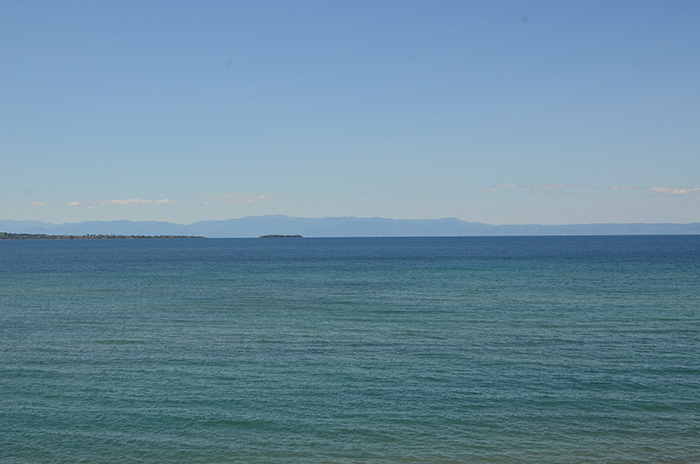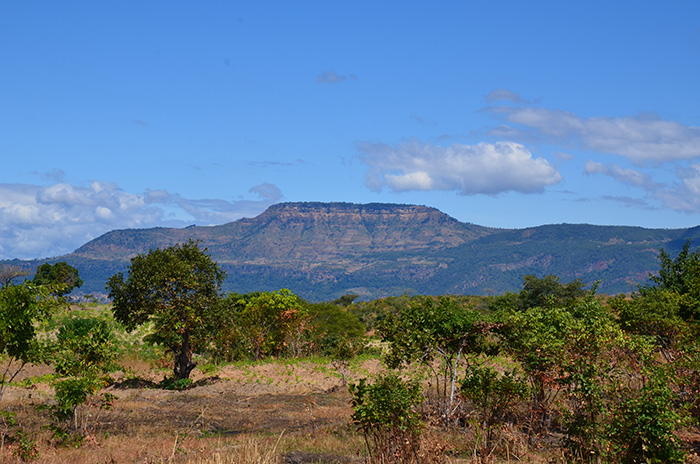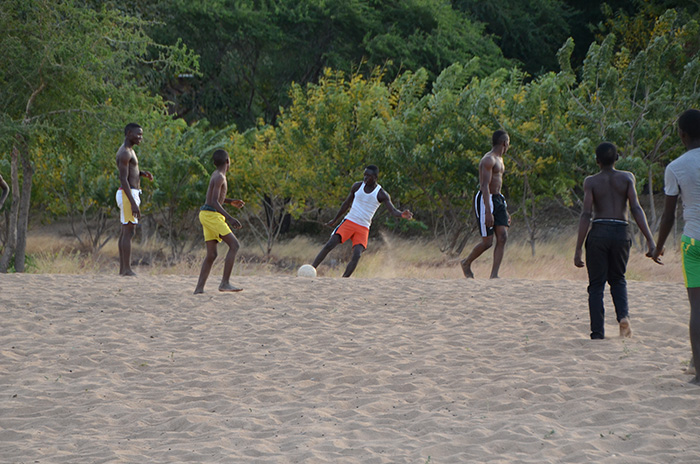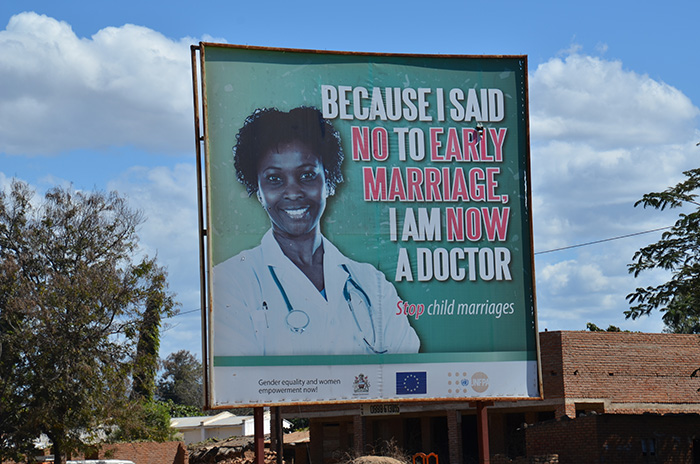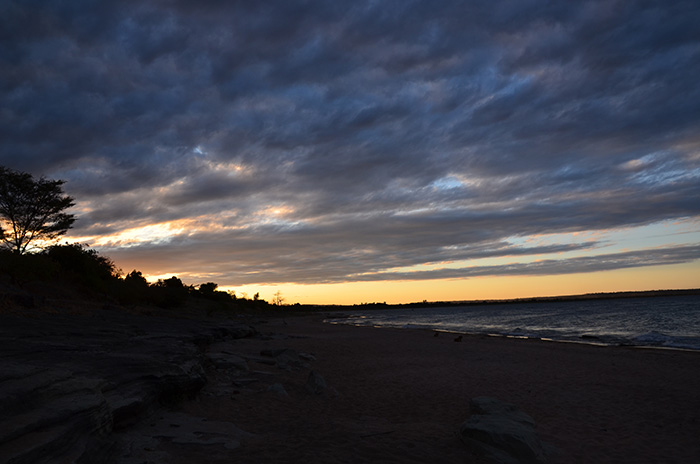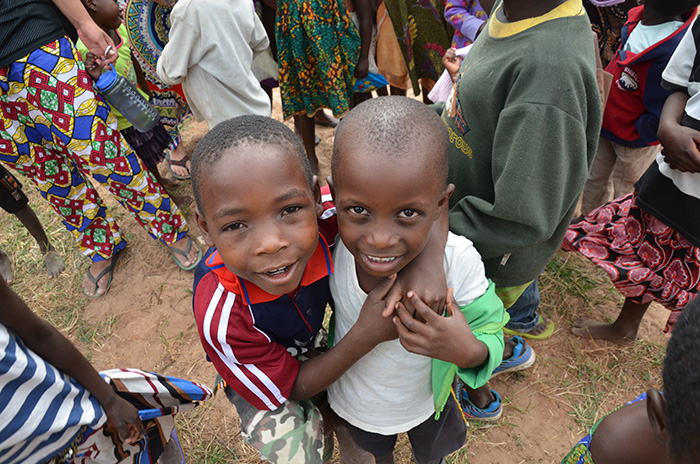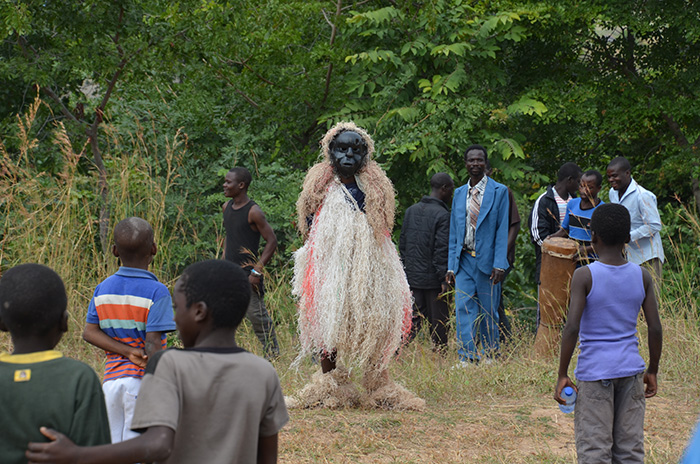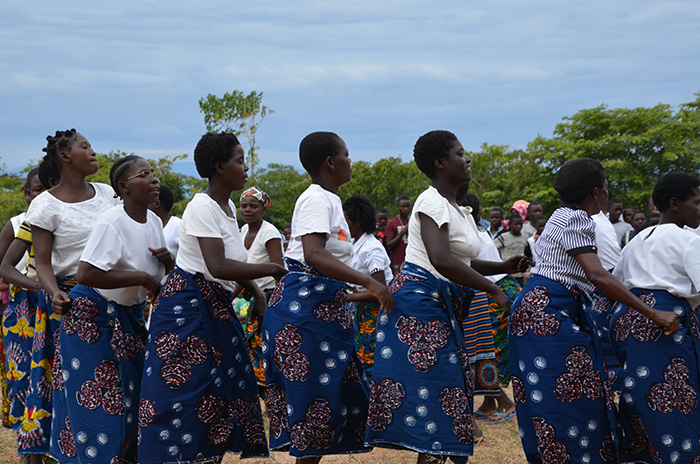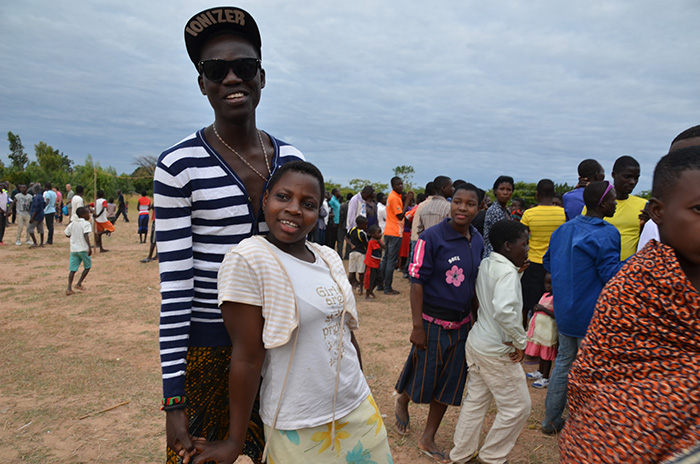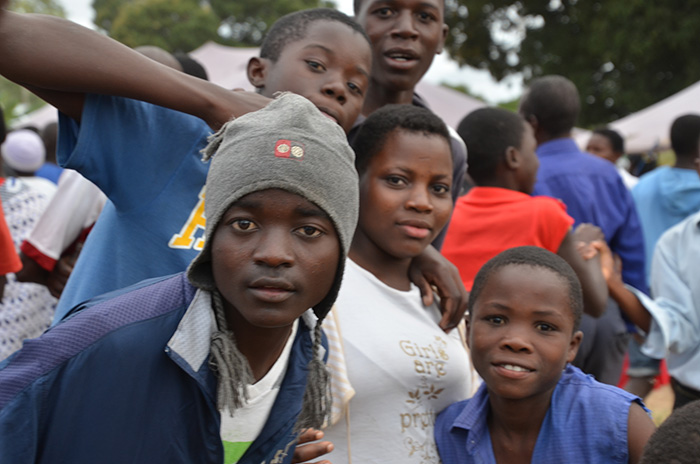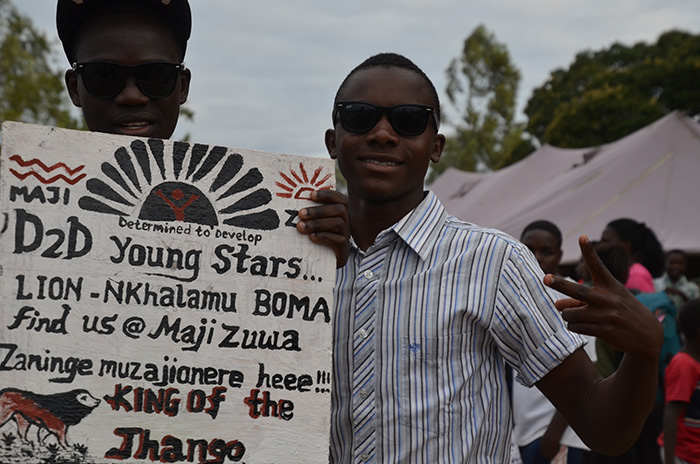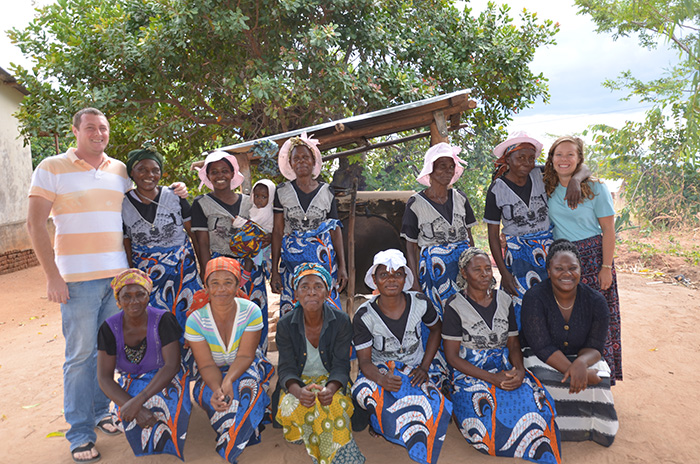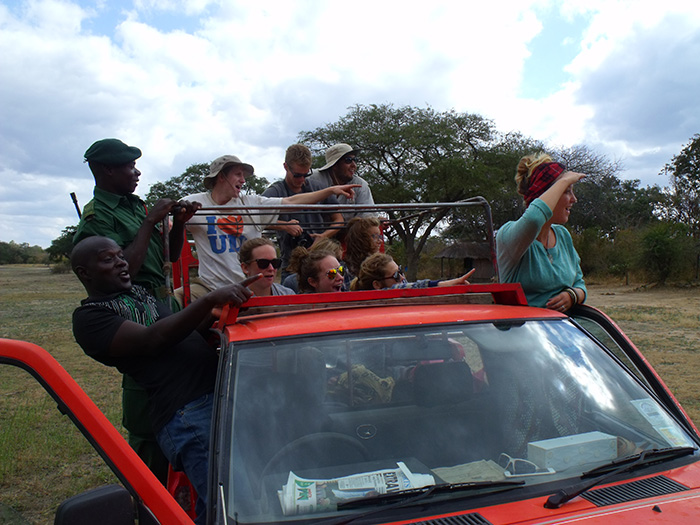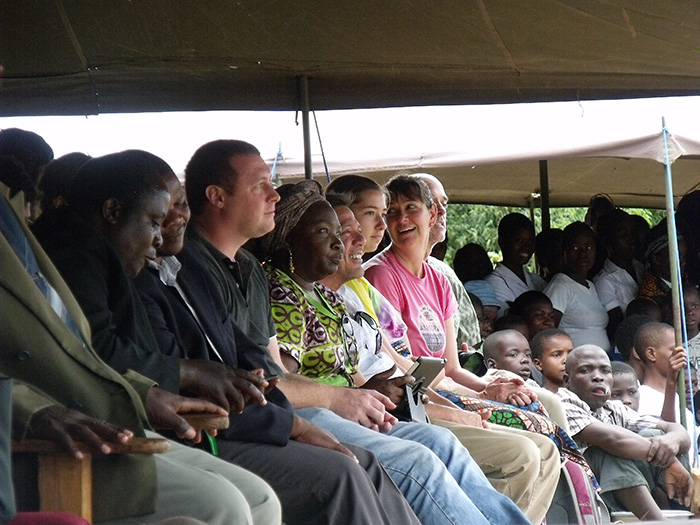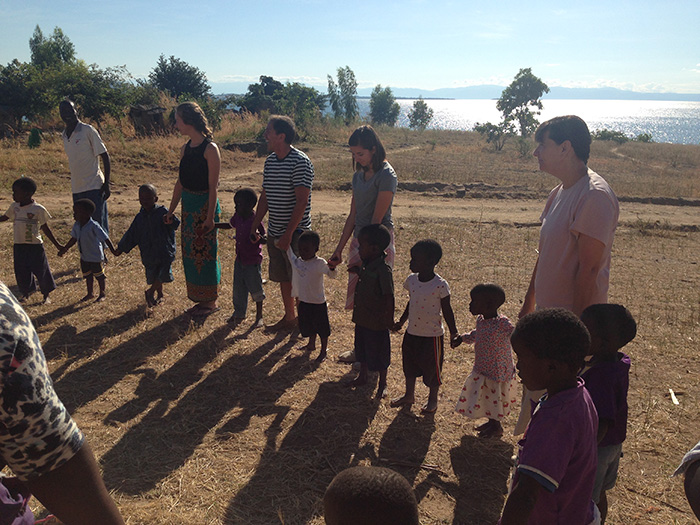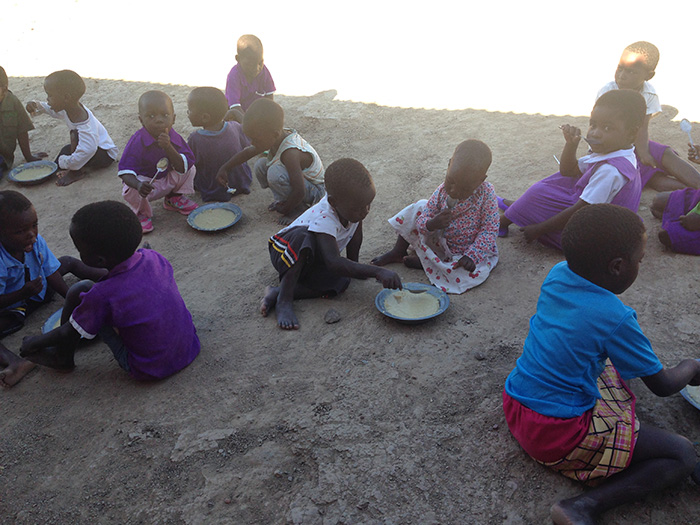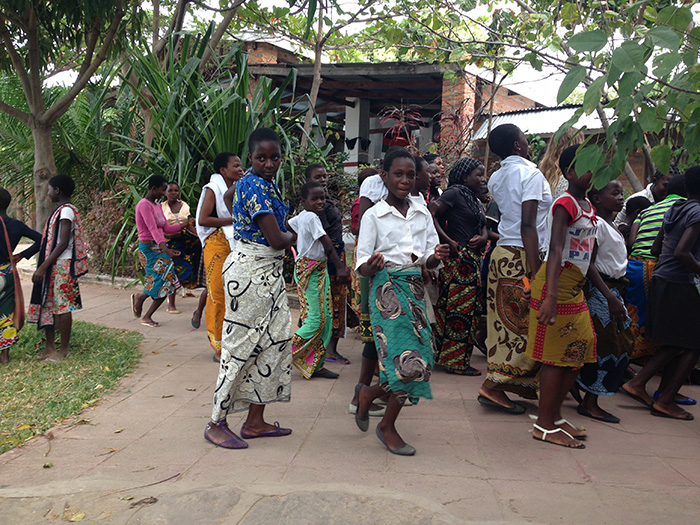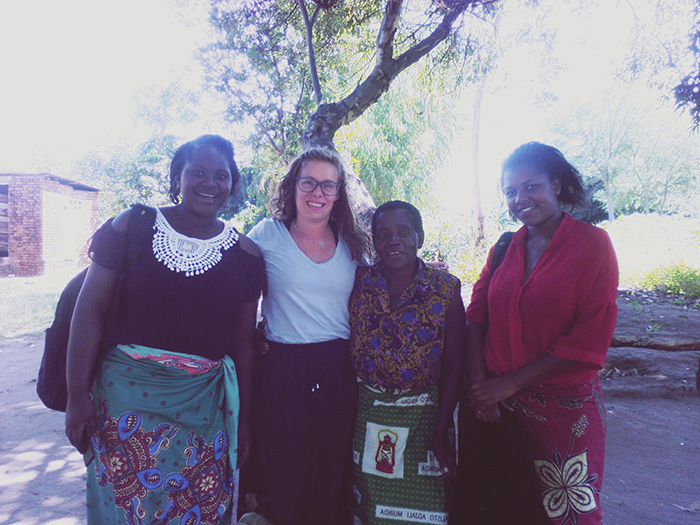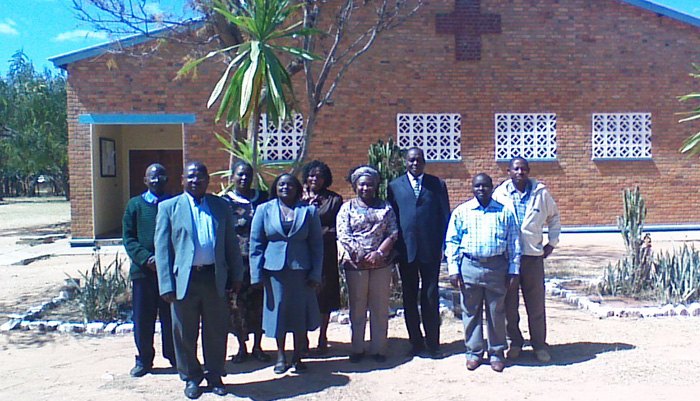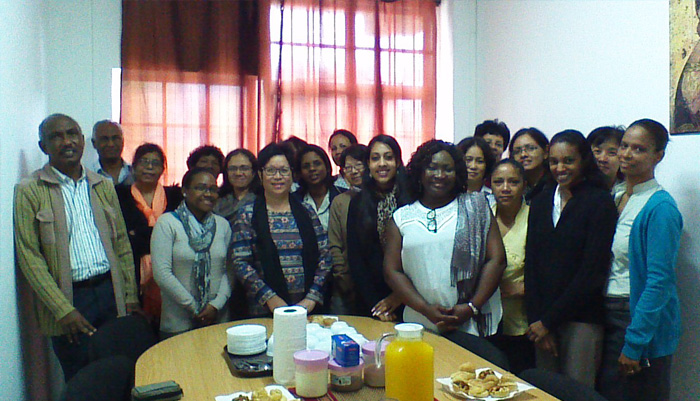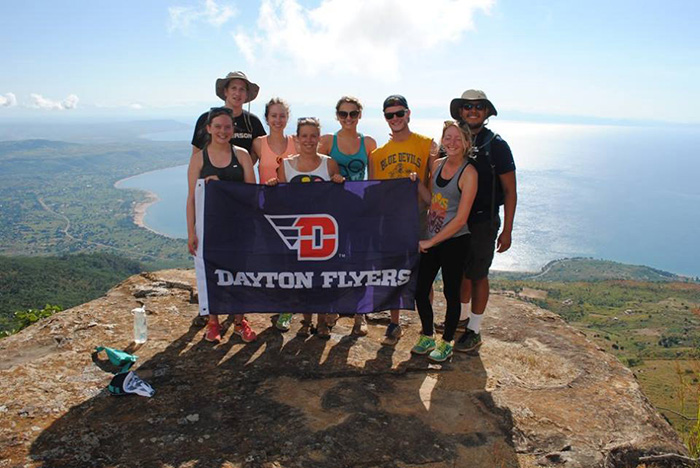College of Arts and Sciences Newsroom
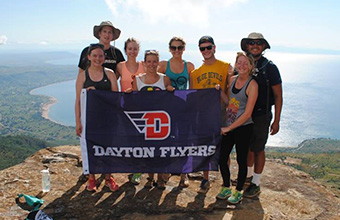
Making a Difference in Malawi
University of Dayton senior Christine Driscoll wants to empower young girls in Malawi, Africa, to pursue their education, so she took a firsthand approach to learning why so many of them choose to drop out of school.
Driscoll, a human rights studies major from Cleveland, Ohio, spent eight weeks this summer conducting interviews with nearly 100 girls in the rural Chilumba region of Malawi. There, she discovered their reasons extend beyond societal pressure to marry early and have babies, to include orphanhood, poverty and the risk of being harassed or raped on a long walk to school.
Driscoll was one of five undergraduate students who participated in the College of Arts and Science’s Malawi Research Practicum on Rights and Development. Now in its fourth year, the summer research program allows students from any major to design independent research projects on critical human rights or development issues, and then conduct their research in the southeastern African country with the support and participation of Malawi residents. The hope is their research will build on that of previous students to affect real change.
“It creates a real opportunity for students to understand what the vocation of working in international development and human rights work is about,” said Grant Neeley, associate professor and chair of the department of political science, which sponsors the program. “They get to take the theories, concepts and skills they learn in the classroom and go apply them in a setting that really values partnership with the people they are working with.”
The students work closely with Determined to Develop, a Karonga-based nongovernmental organization founded and directed by University alumnus Matt Maroon ’06, who provides them with direction, contacts and translators. They live at Maji Zuwa, a lodge that Maroon operates on the shore of scenic Lake Malawi.
Neeley visited Malawi for a week in early July to better understand conditions there and build on the relationship with Determined to Develop.
Maroon, who founded Determined to Develop in 2009, will return to the University campus Sept. 10 to receive the 2016 Joe Belle Young Alumni Award for volunteer service to students and early career achievement.
The University’s founding order, the Society of Mary, has had a presence in Malawi since 1963, most notably with Chaminade Catholic Secondary School and Miracle Technical College in Karonga district. Since 2010, University students have regularly traveled to Malawi to engage in research and service-learning projects.
Malawi, a landlocked country about the size of Pennsylvania, is known as the “Warm Heart of Africa” for its friendly spirit and welcoming people. Despite the optimism of its culture, Malawi is one of the world’s least-developed and most densely populated countries. Nearly 50 percent of its 17.3 million people is under age 15, including an estimated 1 million orphans — more than half of whom have lost one or both of their parents to HIV and AIDS. Many of those children are living in poverty, without access to running water, decent sanitation and medical facilities. They are often forced from school into work or marriage to survive.
For her interviews, Driscoll was paired with Atupele Ngonga and Telinah Kitalu, two final-year social science and development students from the University of Livingstonia, where Maroon spent four years as a lecturer. The interns helped Driscoll translate the Tumbuka language and also immersed her in their culture, so she could better understand the perspective of her interview subjects.
“This research practicum has given me the skills, determination and passion to do community-based research again the future,” she said. “I plan to carry what I learned from my research, and my overall experience in Malawi, with me to graduate school for social work or human rights in the near future.”
Four other students from the College also conducted research projects in Malawi: Alexandra Altomare evaluated the success of women’s economic empowerment initiatives; Carlos Rodriguez assessed the impacts and benefits of nursery education in the town of Chilumba; Josh Schroeder looked at access to and equity of high school education; and Eva Schuller explored communication and project implementation among human service organizations working in the region.
Practicum students begin working with faculty in January to prepare for work in Malawi. They conduct their research from May to July, culminating in presentations of their preliminary findings for Maroon and community leaders. This fall, each student will write a technical report with the conclusions of their research as part of an independent study. Determined to Develop will then use those reports in ongoing and future projects, and also share them with government officials and granting agencies to seek support.
“The work D2D is doing in Malawi to help the country develop is really making an impact, and the people of Chilumba recognize that and are so appreciative,” said Altomare, a junior from Vernon, New Jersey, who is majoring in human rights studies. “It was an honor to be part of that.”
In addition to the College’s students, School of Engineering seniors Megan Timmerman and Reed Kaiser were in Malawi this summer as part of the ETHOS service-learning program, surveying land for a new high school near Sangilo village. School of Education and Health Sciences senior Katherine Geary was also in Malawi, working to design a curriculum for Maroon to use at a nursery school sponsored by Determined to Develop.
Faculty also worked in Malawi this summer to advance the University’s mission.
Dorothy Mensah-Aggrey, University Institute for Pastoral Initiatives curriculum design and adult catechesis specialist, spent two weeks in Malawi and five days on the east African island nation of Mauritius. In Malawi, she worked with Bishop Martin Mtumbuka to implement the institute’s online faith formation courses for Catholic school teachers and catechists in the Diocese of Karonga, which will involve translating documents into Chichewa, a local dialect.
Mensah-Aggrey, a native of Ghana, Africa, had similar partnership discussions with diocesan and Catholic education leaders in Mauritius, where the documents would be translated into French. “Two-thousand teachers are going to take our courses if they partner with us, so that’s a big deal,” she said.
- Dave Larsen, communication coordinator, College of Arts and Sciences

